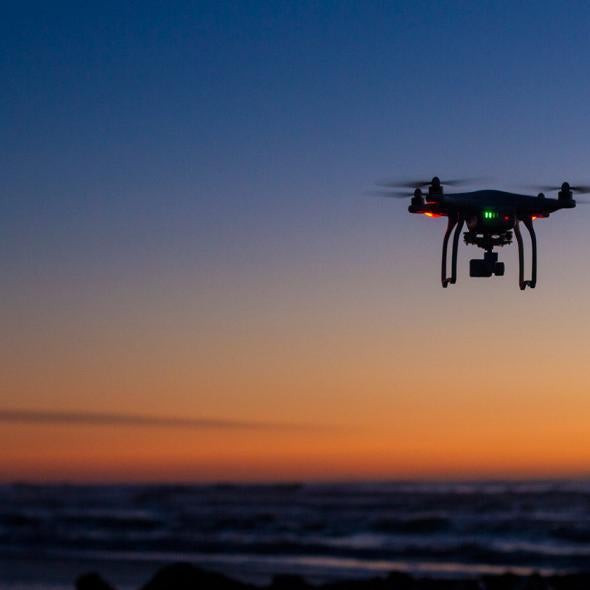Rightly or wrongly, civilian-operated drones have a bad reputation. Maybe it’s because we conflate them with the military variety or maybe because there are so many myths about them. Whatever the reasons, the Trump administration seems to have bought in to the anti-drone narrative. As the New York Times reported Tuesday, the administration has been circulating a “draft and summary of legislation” that would “give the federal government sweeping powers to track, hack and destroy any type of drone over domestic soil with a new exception to laws governing surveillance, computer privacy and aircraft protection.”
That document—titled “Official Actions to Address Threats Posed by Unmanned Aircraft Systems to Public Safety or Homeland Security”—suggests that these changes are necessary because drone technology threatens a variety of government operations. Among other things, it argues that unmanned aircraft present risks to firefighting, fugitive apprehension, and even “transportation of special nuclear materials.” (Some of those potential dangers, most notably firefighting, appear to be based on real events.)
The draft goes on to say that the legislation will help ensure that personnel involved in such operations will not be held responsible if they take actions to protect missions that are under way. That may be reasonable enough, since, as the Federal Aviation Administration confirmed last year, it’s technically illegal to shoot down a drone. If emergency responders do have to stop a drone that’s actually disrupting their operations, we presumably wouldn’t want them to get into trouble.
Nevertheless, the Times flags some potential issues. For one, it notes, “The government would have to respect ‘privacy, civil rights and civil liberties’ when exercising that power, the draft bill says. But courts would have no jurisdiction to hear lawsuits arising from such activity.” In other words, you’d probably have no real recourse if the military shot down your drone, even if you were flying it innocently. Further, the draft document indicates that any drone brought down by authorities “is subject to forfeiture to the United States,” meaning that you might not even be able to reclaim its battered husk afterward.
There are plenty of other outstanding questions here, including how authorities would stop drones. The draft document calls for “research, testing, training on, and evaluation of any equipment, including any electronic equipment, to determine its capability and utility to enable” the tracking and destruction of drones. It’s not wholly clear what such equipment would entail (presumably something more sophisticated than trained eagles), but the draft suggests that it could involve accessing “radio communications or signals transmitted to or by an unmanned aircraft system.”
It’s worth noting that a system capable of penetrating drone communications might raise serious civil liberty issues, since it would presumably grant law enforcement access to the devices used to control unmanned aircraft, and not just the drones themselves. Given that many drones are controlled by smartphone, the Trump administration may be effectively requesting a back door into our devices, all in the name of protecting us from a risk that may or may not even be real.
Whether that’s even possible is a wholly different story, of course. Still, it may be worth keeping an eye on this legislation, if only to ensure that our fear of minor privacy violations doesn’t destroy our digital privacy all together.
